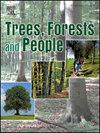推进印尼SRN与国际标准之间的互认协议(MRAs),扩大森林碳信用额度
IF 2.9
Q1 FORESTRY
引用次数: 0
摘要
印度尼西亚的林业部门在抵消能源和工业等主要部门的排放方面具有巨大潜力,但其参与国际自愿碳市场(VCMs)受到监管不确定性、对印度尼西亚国家注册系统(SRN)的有限认可以及获得国际标准的限制等因素的阻碍。本文研究了SRN与主要国际标准(如Verra、Gold Standard (GS)、ART-TREES)之间的互认协议(MRAs)如何解决这些障碍。该研究采用混合方法的政策审查设计,将文献(如政府法规、法令、指导方针和政策简报、国际标准指南、学术出版物和碳市场报告)的结构化审查与专家访谈和利益相关者咨询的主要定性数据相结合。通过归纳和演绎编码对数据进行主题分析,从一阶编码推进到聚合维度,并在文件、访谈和咨询中进行三角测量,增强了鲁棒性。调查结果突出了在方法一致性、透明度、确认和验证严密性以及注册中心互操作性方面的关键挑战。利益相关者强调,设计良好的mra可以提高SRN的可信度,实现双标识认证,增强投资者信心,并开辟可持续的收入来源。一个分阶段的战略,从方法论的相互承认开始,发展到双重验证,向全面注册互操作性迈进,可以使印度尼西亚在市场准入和监管主权之间取得平衡。如果在明确的授权和包容性治理下实施,MRAs可以将印度尼西亚的森林碳信用额转化为可信的全球资产,同时支持国家气候目标。本文章由计算机程序翻译,如有差异,请以英文原文为准。
Advancing Mutual Recognition Agreements (MRAs) between Indonesia’s SRN and international standards to expand forestry carbon credits in VCMs
Indonesia’s forestry sector holds vast potential for offsetting emissions from major sectors like energy and industry, yet its participation in international voluntary carbon markets (VCMs) is hindered by regulatory uncertainty, limited recognition of Indonesia’s National Registry System (SRN), and restricted access to international standards. This paper examines how Mutual Recognition Agreements (MRAs) between SRN and major international standards – such as Verra, Gold Standard (GS), ART-TREES – could address these barriers. Employing a mixed-methods policy review design, the study combined a structured reviews of literature (e.g., government regulations, decrees, guidelines, and policy briefs; international standards’ guidelines; academic publications; and carbon market reports) with primary qualitative data from expert interviews and stakeholder consultations. Data were analyzed thematically through inductive and deductive coding, progressing from first-order codes to aggregate dimensions, with triangulation across documents, interviews, and consultations enhancing robustness. Findings highlight critical challenges in methodological alignment, transparency, validation and verification rigor, and registry interoperability. Stakeholders emphasized that well-designed MRAs could enhance SRN’s credibility, enable dual logo certification, strengthen investor confidence, and open sustainable revenue streams. A phased strategy, begining with mutual recognition of methodologies, progressing to dual validation, advancing toward full registry interoperability, could allow Indonesia to balance market access with regulatory sovereignty. If implemented under clear mandates and inclusive governance, MRAs could transform Indonesia’s forest carbon credits into credible global assets while supporting national climate goals.
求助全文
通过发布文献求助,成功后即可免费获取论文全文。
去求助
来源期刊

Trees, Forests and People
Economics, Econometrics and Finance-Economics, Econometrics and Finance (miscellaneous)
CiteScore
4.30
自引率
7.40%
发文量
172
审稿时长
56 days
 求助内容:
求助内容: 应助结果提醒方式:
应助结果提醒方式:


